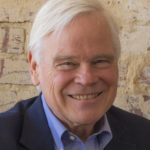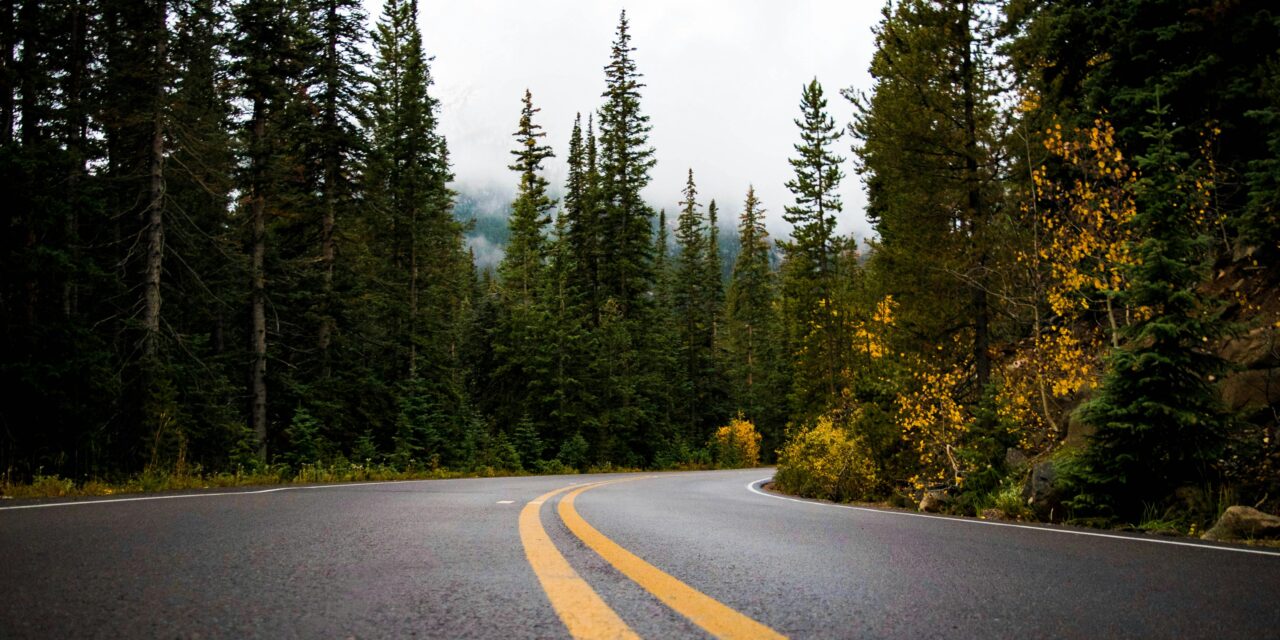As long as we have needed to get from point A to point B, by trading routes or trails or paved interstate, there have been directions given, maps drawn, and roads traveled.
When we think about our great American roads, the Oregon Trail comes to mind. A path pounded by feet and hooves heading west. Another, later in history, is Route 66, winding west as well from Chicago to the west coast. These lines on a map are an evocative part of our history, part of our identity.
James Dodson of Greensboro sets out on a soulful journey in his new book, “The Road that Made America,” tracing the old Great Wagon Road—an 800-mile thread of history running through six states, from Philadelphia down to Augusta, Georgia.
He first heard about the Great Wagon Road as a young teen when visiting his great-grandparents’ land near Hillsborough. Dodson’s father explained how their family came to that land and gave a quick history lesson on “the primary road of frontier America used by thousands of European settlers from Pennsylvania to reach the colonial backcountry of Maryland.”
His dad said it was a mass migration route that “not only opened up the Southern frontier and wilderness east of the Appalachian Mountains to America’s first settlers but served as the gateway for the exploration of the American West.”
Young Dodson was captivated by this specter of a road, and the idea that it connected him to the past. To Dodson and his family, the road held another allure. It brought together their Scottish and English forebears as well as their German ancestors.
Fifty years later, Dodson invites us along to uncover secrets of the Great Wagon Road. He’s like a teenager again with the keys to the car and a full tank of gas in his vintage ride: a 1994 Buick Roadmaster Estate station wagon. You feel his giddiness as he starts his journey of exploring, driving, and writing in Philadelphia, and makes his way all the way to the road’s end in North Carolina.
This happily married man tumbles into a “hidden love life up in the Blue Ridge hills,” taking a mistress in the Great Wagon Road. And the greatest part? He brings us along for the ups and downs of the romance. Don’t worry, it’s all rated G!
In churches, hidden backyard museums, restaurants, cemeteries, and old inns, Dodson turns over rocks of early colonial America. He reminds us at each bend in the road that our time here in 2025 is not unique. While he keeps us entertained with the characters and adventures along the way, he’s often probing the roots of today’s partisanship in his open-minded conversations and explorations.
There are many striking moments in Dodson’s book, but one chapter stands out for its haunting look back at 1763 in Lancaster County, PA, when the Paxton Boys—frontier vigilantes—massacred the Conestogas, a peaceful Indigenous people whose name lives on in the iconic Conestoga wagon. What began as a local act of violence grew into something much larger: a mob of 5,000 Paxton boys marching toward Philadelphia with intentions to sack the city.
A local historian tells Dodson, “I don’t perceive a more divided time in our history since the days of Buchanan’s presidency.” (Buchanan consistently has the dishonor of being ranked by many historians as the worst president in American history). And in a chilling connection across the centuries, the same historian adds, “The neo-Nazis and other fringe militia groups of today are the spiritual descendants of the Paxton Boys of two hundred and fifty years ago.”
These disquieting reminders that history often repeats itself echo throughout “The Road that Made America.” But Dodson does not leave us in despair. Instead, he gives us hope, reminding us that learning our history is the best antidote to repeating mistakes. Another historian puts it plainly: our job is “unearthing one true story at a time.” She says, “we can only move forward because we’re finally talking about this stuff.”
In taking the time to court a relationship with our history—even with all its contradictions—we begin to see that its very complexities may hold clues to finding our way through the challenges of today.
 D.G. Martin, a lawyer, retired as UNC system vice president for public affairs in 1997. He hosted PBC-NC’s “North Carolina Bookwatch,” for more than 20 years.
D.G. Martin, a lawyer, retired as UNC system vice president for public affairs in 1997. He hosted PBC-NC’s “North Carolina Bookwatch,” for more than 20 years.
Chapelboro.com does not charge subscription fees, and you can directly support our efforts in local journalism here. Want more of what you see on Chapelboro? Let us bring free local news and community information to you by signing up for our newsletter.


